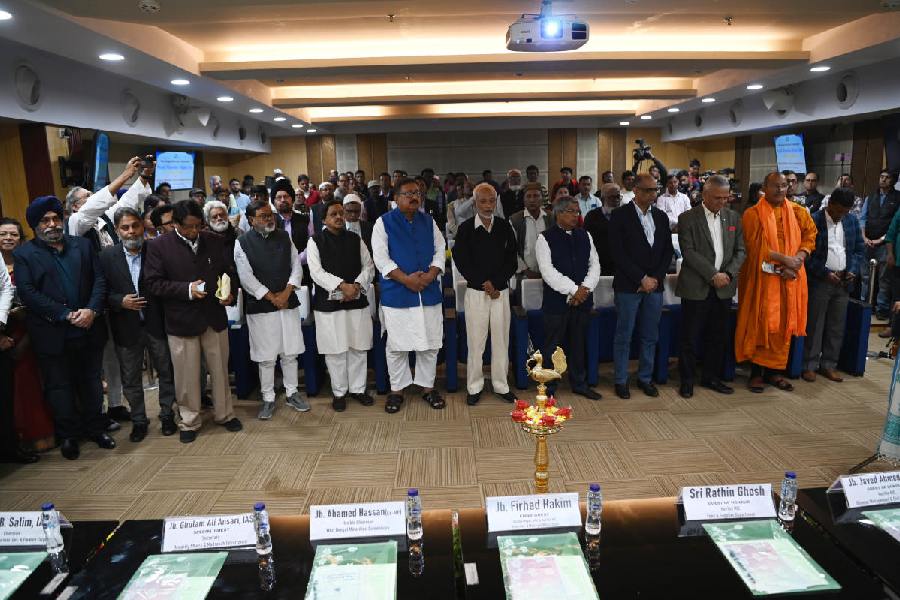Minorities are still made to feel like “them” and not “us” in many parts of India and this othering must stop, Firhad Hakim, one of the minority faces of the Trinamul Congress and the mayor of Calcutta told a symposium on minority rights on Monday.
As expected, Hakim heaped praise on the state government. He said the Bengal government had instilled a sense of “us” among the minorities.
Multiple social welfare schemes have uplifted the status of Muslims, who are now in a better condition compared to the plight mentioned in the Sachar committee report, Hakim said.
The Sachar committee report, which was tabled in both houses of Parliament on November 30, 2006, revealed that Bengal had only 4.2 per cent Muslims in government jobs. In the category of mean years of schooling, the report mentioned that “poor performance of Muslims is also observed in almost all states, particularly in West Bengal and Uttar Pradesh”.
“In Bengal, our government has been able to make minorities one of ‘us’ and
not a distant ‘them’. The multiple social welfare schemes have empowered the minorities and instilled in them a sense of empowerment,” Hakim said, speaking on the topic “Inclusion of minorities is vital for sustainable democracy”.
In many parts of the country, Hakim said, what minorities can wear, what they can eat and whether loudspeakers can be used in a place of worship are decided by the government.
“Given the current situation in India, minorities are still treated as ‘them’ in many parts of the country. This has to stop. They must feel like they are one of us,” Hakim, also the state’s urban development minister, told Metro on the sidelines of the meet.
A member of the Muslim community said Aikyashree, a scholarship given to students from minority communities, has helped many families get their children educated. The education loan offered to minority students at a very low rate of interest is also quite popular, he said.
But the community member, citing data presented at the symposium, said the inclusion of Muslims in the mainstream or the increase of their share in jobs has not grown “at a satisfactory pace”.
Sabir Ahamed, national research coordinator for Pratichi Trust, which was set up by Nobel laureate Amartya Sen, said Muslims held 6.3 per cent of government jobs in the state in 2019.
Ahamed, who spoke at the symposium, organised by the West Bengal Minorities Commission on the occasion of World Minorities’ Rights Day, collected the data from the state government through right-to-information applications.
“This (Muslims’ share in government jobs) should have been much higher,” the community member later told Metro. According to the 2011 census, Muslims constituted 27.01 of Bengal’s population.
Ahamed spoke on the need to increase the representation of minorities in all spheres.
“There is something called the politics of presence. The concerns and the demands of a group are articulated only when they are visible and well represented,” he said.
“Increased presence of historically excluded groups is a sign of inclusiveness of institutions and societies,” Ahamed said.
Javed Khan, the state’s disaster management and civil defence minister, urged the minorities to stand with each other and help those who are less privileged.
